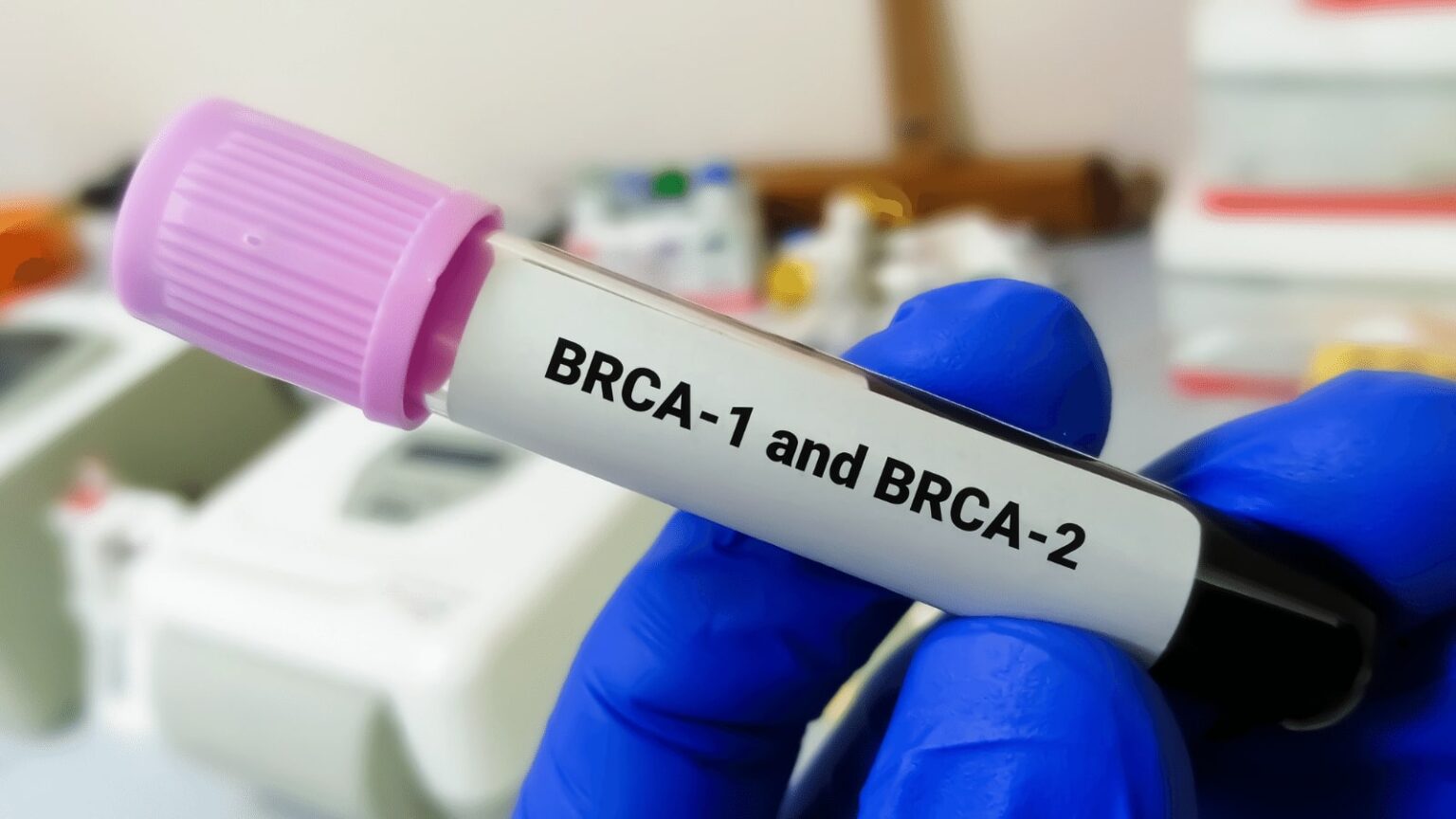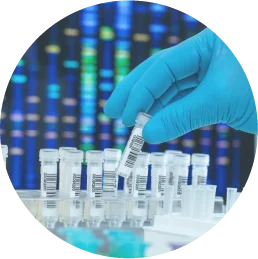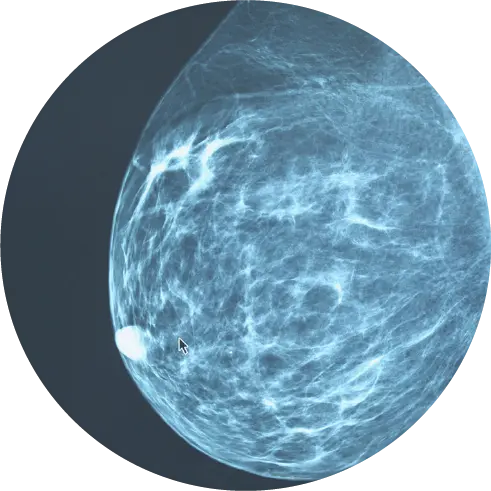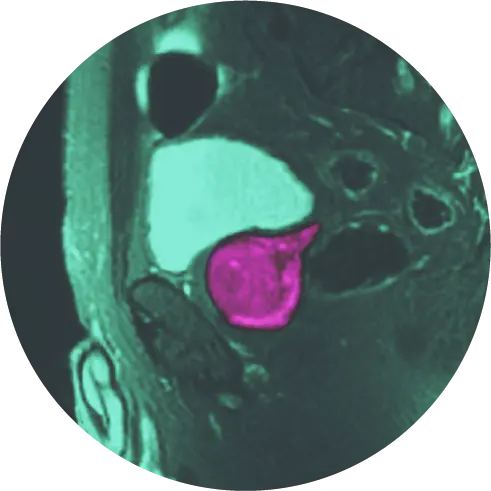If you follow the latest medical news, it’s easy to get confused by all the technical terms and acronyms. Maybe you’ve heard about BRCA genes and wondered what they are – and what they mean for your health.
Let’s dive right in. Knowledge is power, and with it, you can take the next steps.
One in eight women will be diagnosed with breast cancer in their lifetime – and women with BRCA gene mutations are at an increased risk. Before the age of 70, about 50 to 60% of women with a BRCA1 mutation and 30 to 45% of women with the BRCA2 mutation will develop breast cancer.1
Still, the good news is this: By detecting these variants early, many breast cancer cases can be treated with success.
What are BRCA Genes?
The letters “BRCA” stand for the “BReast CAncer gene.” But BRCA1 and BRCA2 genes themselves do not cause breast cancer.
Sometimes called tumor suppressor genes, BRCA1 and BRCA2 genes typically help prevent breast cancer by repairing DNA breaks that can lead to tumor growth. Every human being has two copies of the BRCA1 and BRCA2 genes. We inherit one copy from each parent.
However, about 1 in 400 people has a mutation in these genes. They’re more likely to develop breast and ovarian cancer and can pass this mutation to their children.2
This is called an inherited mutation, or a gene variant.
If either of your parents has a BRCA1 or BRCA2 gene mutation, you have a 50% chance of having the same mutation. These variants don’t skip generations, but not everyone with BRCA mutations develops cancer.
Some ethnic / racial groups are at a higher risk for inheriting BRCA mutations. For example, about 1 in 40 women of Ashkenazi Jewish descent has a BRCA variant.3
Why Knowing If You Have a BRCA Mutation Matters
Most cancer cases are sporadic, or happen by chance, but 5 to 10% are caused by inherited variants such as BRCA genes.
An estimated one million Americans have a BRCA mutation – but less than 10% know they have that increased cancer risk.
These numbers show why it is essential to know your family’s health and medical history and to take steps to reduce your risk.
The Importance of Screenings
Regular breast screenings allow you to be proactive so that if cancer does occur, it can be diagnosed early.4
BRCA1 and BRCA2 mutations cause no specific symptoms of breast cancer. Still, your doctor might recommend genetic screenings if you have the following risk factors:
- Ovarian cancer at any age
- Breast cancer diagnosed before the age of 50
- Breast cancer diagnosis occurring more than once
- Both breast and ovarian cancer
- Cancer in both breasts
- Triple-negative breast cancer
- A relative with a known BRCA mutation
- Cancer of the fallopian tube or abdominal lining
- Breast cancer history and Ashkenazi Jewish ancestry5
Ideally, a family member with breast or ovarian cancer will have the BRCA gene test first. If they don’t carry the mutation, other family members may not benefit from testing.
A genetic counselor can help you decide on testing options based on your personal and family history.
What Happens during BRCA Testing?
First, you’ll meet with a genetic counselor who will take your family and medical history, assess your cancer risk, and discuss the benefits and risks of genetic testing.
The BRCA test typically involves a blood sample that is sent to a lab for DNA analysis. Sometimes, a saliva DNA test is used. Results usually take a few weeks.
A negative test result means that a BRCA gene mutation was not detected in your sample. The test result is called a “true negative” if you don’t carry the specific BRCA mutation identified in a relative.
Still, a negative result doesn’t mean you won’t get breast cancer. Instead, you have the same risk as the general population.
A positive BRCA result does indicate a mutation in one of your breast cancer genes. You have a higher risk of developing breast or ovarian cancer than a person without this variant, but a positive result doesn’t mean you’ll develop cancer.
Your doctor will discuss follow-up care and any measures, procedures, or medications that might reduce your cancer risk. Their recommendations and your decisions will depend on your age, health history, prior treatments or surgeries, and preferences. For women who’ve given birth and breastfed children, doctors might recommend a preventive mastectomy or the removal of the fallopian tubes / ovaries. They may also suggest medicines that block or decrease estrogen.5
Researchers continue to study BRCA gene mutations and are working to develop new, more sophisticated tests each day. If you had a test more than five years ago, or if your family health history has changed in any way, you might request a retest.
Most insurance companies will cover the testing if you have the risk factors mentioned above.6
How a Negative Can Be a Positive
If your family has a history of breast cancer, it’s understandable to worry about testing positive for a BRCA gene mutation. It’s true that having this genetic variant increases your risk of developing breast cancer. But it’s also true that many people who carry the variant do not develop breast cancer.
Routine screenings make early detection and treatment possible – and can save lives.
Contact Us
At HALO Diagnostics, we offer breast screenings at our HALO Breast Care Center in Chico, Silicon Valley MRI in Silicon Valley, and Palms Imaging Center in Oxnard, as well as Precision Imaging Centers’ four locations in and around Jacksonville, Florida.
References
- National Breast Cancer Foundation. (2020). BRCA: The breast cancer gene. Published online April 15, 2020.
- National Cancer Institute. (2020). BRCA gene mutations: Cancer risk and genetic testing. Published online November 19, 2020.
- Centers for Disease Control and Prevention. (2021). Jewish women and BRCA gene mutations. Published online September 27, 2021.
- Centers for Disease Control and Prevention. (2021). BRCA gene mutations. Published online September 27, 2021.
- Euhus, D.M. (2022). Inherited cancer risk: BRCA mutation. Johns Hopkins Medicine. Retrieved from https://www.hopkinsmedicine.org/health/conditions-and-diseases/breast-cancer/inherited-cancer-risk-brca-mutation
- Mayo Clinic. (2022). BRCA gene test for breast and ovarian cancer risk. Retrieved from https://www.mayoclinic.org/tests-procedures/brca-gene-test/about/pac-20384815




